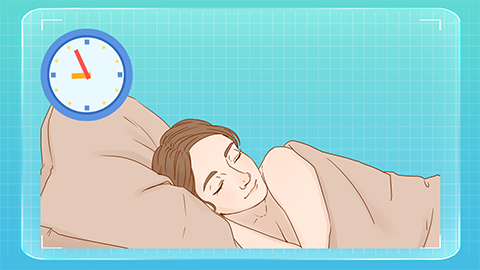Why Do Diabetic Patients Often Feel Drowsy?
Generally, diabetes patients may feel sleepy due to several factors, including poor blood sugar control, excessive dieting, diabetic neuropathy, diabetic nephropathy, and concomitant obstructive sleep apnea syndrome. It is recommended to seek timely medical consultation to identify the underlying cause and receive appropriate treatment under a physician's guidance. Detailed explanations are as follows:

1. Poor Blood Sugar Control: Prolonged high or fluctuating blood glucose levels prevent cells from effectively utilizing glucose, leading to insufficient energy supply and resulting in fatigue and increased sleepiness. Strict adherence to prescribed hypoglycemic medications such as Metformin tablets, Insulin Aspart injections, and Glimepiride tablets, along with regular blood glucose monitoring, is essential to maintain stable blood sugar levels within a reasonable range. Controlling carbohydrate intake and avoiding high-sugar foods can improve energy supply and reduce feelings of sleepiness.
2. Excessive Dieting: Overly restricting food intake to control blood sugar may lead to insufficient caloric and nutritional intake, causing a lack of energy reserves and resulting in persistent fatigue and dizziness. Under the guidance of a physician or nutritionist, develop a reasonable dietary plan that ensures adequate daily intake of calories, proteins, vitamins, and other nutrients. Eating smaller meals more frequently and avoiding prolonged fasting can help alleviate sleepiness once proper nutrition is achieved.
3. Diabetic Neuropathy: Long-term hyperglycemia can damage peripheral and autonomic nerves, impairing the nerves' regulatory functions and leading to poor sleep quality and daytime sleepiness, often accompanied by numbness and sensory abnormalities in the limbs. Patients should strictly control blood sugar levels and follow medical advice to use neurotrophic medications such as Mecobalamin tablets, Epalrestat tablets, and Vitamin B1 tablets to improve nerve function. Ensuring adequate sleep can also help reduce the impact of neuropathy on sleep quality.
4. Diabetic Nephropathy: Diabetes-induced kidney damage and declining renal function lead to the accumulation of metabolic waste in the body, affecting overall metabolism and causing fatigue, along with symptoms such as edema and increased foaming in urine. Patients should follow a low-protein diet and strictly control blood sugar levels under medical guidance using medications like Insulin Glargine injections, Insulin Aspart injections, and Insulin Degludec injections. Additionally, medications such as Irbesartan tablets and Captopril tablets can help protect kidney function. Improved kidney function can help alleviate fatigue.
5. Diabetes with Obstructive Sleep Apnea Syndrome: Diabetic patients are prone to obesity and fat accumulation in the throat area, which can block the airway during sleep, causing breathing pauses and oxygen deficiency, leading to severe daytime sleepiness and snoring. Patients should actively manage their weight, reduce intake of high-sugar and high-fat foods, and sleep in a lateral position. For severe cases, continuous positive airway pressure (CPAP) devices may be used to assist breathing, or uvulopalatopharyngoplasty (UPPP) surgery may be performed to widen the airway and improve ventilation, thereby enhancing sleep quality and alleviating fatigue.
In daily life, maintaining a regular sleep schedule, avoiding late nights, and engaging in mild physical activities like walking and tai chi can help improve physical fitness. Regular monitoring of blood glucose, liver and kidney function, and nerve function is essential to detect and manage complications promptly, reducing discomfort such as fatigue and improving overall quality of life.







